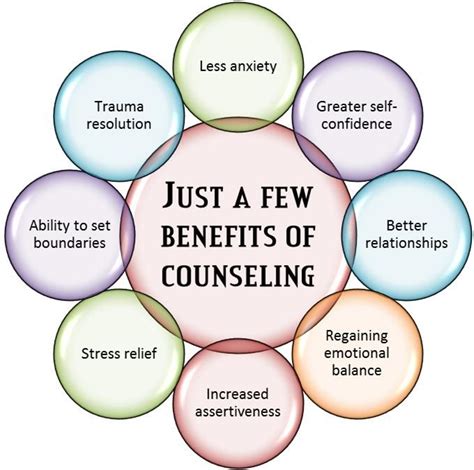Counseling can be a valuable resource for college students facing a variety of challenges. From academic stress to relationship issues, counseling can provide a safe and supportive environment to discuss and work through difficult experiences.

Academic Benefits
Counseling can help college students improve their academic performance in several ways. First, counseling can help students identify and overcome academic challenges. For example, a student who is struggling in a particular class may benefit from working with a counselor to develop better study habits, time management skills, or test-taking strategies.
Second, counseling can help students reduce stress and anxiety levels. When students are feeling overwhelmed or stressed, it can be difficult to focus on their studies. Counseling can provide a safe space for students to discuss their stressors and develop coping mechanisms.
Third, counseling can help students develop better decision-making skills. College students are often faced with a variety of choices, from choosing classes to deciding on a major. Counseling can help students weigh the pros and cons of different options and make informed decisions.
Mental Health Benefits
Counseling can also provide significant mental health benefits for college students. For example, counseling can help students manage depression, anxiety, and other mental health conditions. Counseling can also help students develop coping mechanisms for dealing with stress, relationships, and other challenges.
In addition, counseling can help students build self-esteem and confidence. When students feel good about themselves, they are more likely to succeed in their studies and other areas of their lives.
Personal Benefits
Counseling can also provide personal benefits for college students. For example, counseling can help students develop stronger relationships with family and friends. Counseling can also help students learn how to communicate effectively, resolve conflict, and set boundaries.
In addition, counseling can help students develop a greater sense of self-awareness and purpose. When students understand themselves better, they are better able to make choices that are in line with their values and goals.
How to Find a Counselor
If you are a college student who is interested in seeking counseling, there are a few things you can do to find a qualified counselor. First, you can ask your friends, family, or professors for recommendations. You can also search online for counselors in your area.
Once you have found a few potential counselors, you can schedule an appointment to meet with them. During the meeting, you can discuss your reasons for seeking counseling and see if the counselor is a good fit for you.
Conclusion
Counseling can be a valuable resource for college students facing a variety of challenges. Counseling can help students improve their academic performance, manage stress, cope with mental health conditions, and build stronger relationships. If you are a college student who is struggling, counseling may be a good option for you.
There is a growing body of research that supports the benefits of counseling for college students. For example, a study published in the Journal of Counseling Psychology found that college students who received counseling had significantly higher GPAs than students who did not receive counseling.
Another study, published in the Journal of American College Health, found that college students who received counseling had significantly lower levels of stress and anxiety than students who did not receive counseling.
In addition, a study published in the Journal of Clinical Psychology found that college students who received counseling had significantly higher levels of self-esteem and confidence than students who did not receive counseling.
If you are a college student who is interested in seeking counseling, there are a few things you can do to find a qualified counselor.
- Ask your friends, family, or professors for recommendations.
- Search online for counselors in your area.
- Contact your college’s counseling center.
- Meet with several counselors to find one who is a good fit for you.
-
What are the benefits of counseling for college students?
Counseling can help college students improve their academic performance, manage stress, cope with mental health conditions, and build stronger relationships. -
How can I find a counselor?
You can ask your friends, family, or professors for recommendations. You can also search online for counselors in your area or contact your college’s counseling center. -
How much does counseling cost?
The cost of counseling varies depending on the counselor’s fees and insurance coverage. -
How long does counseling last?
The length of counseling varies depending on the individual’s needs. -
Is counseling confidential?
Yes, counseling is confidential. Counselors are required to keep all information discussed in counseling confidential. -
Can I get counseling online?
Yes, you can get counseling online through a variety of platforms.
